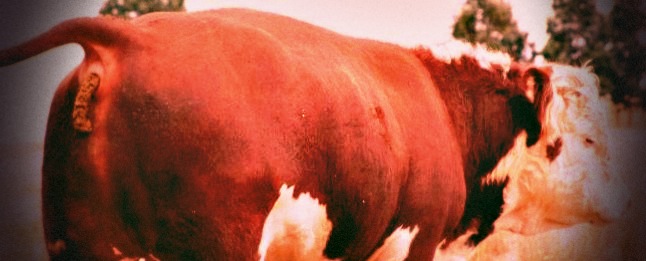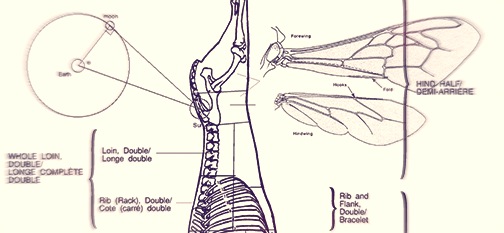Get Curious
[This is part 5 in the ongoing Fuck the Muse mini-series.]
Now that you have a seed worth exploring, you are ready for step 2 of the creative process. The goal of this phase is explosive growth, following your curiosity out from the seed in every direction.
You’ve heard of the shitty first draft? It’s a nice sentiment, writing full shitty drafts without fear or judgment, but I think you can do even better:
Write shitty piles of shit, and leave the drafting for later.

Drafting is an organizational problem. You can’t organize ideas you don’t have. Start by exploring and playing and wondering, free from fear and judgment, but also free from purpose, organization, and planning.
Don’t start with outlines. Don’t start with drafts. Start with curiosity.
A Shitty Shopping List
Our goal is to develop all the raw (shitty) materials we will need in order to start drafting. I’m not talking about pen & paper, or computers, or three cans of latex paint. I want to know what concepts, phrases, images, and aesthetics I am working with. I want to soak up inspirations, and understand my constraints.
I start with three questions:
- What already exists?
- What still needs to be gathered or created?
- What will inspire me?
Working on the book cover for The Posture of Contour, I asked the publishers and author for everything they had. Based on their answers, I ended up with these lists:

What already exists?
- Dimensions: 5.5" x 8.5"
- SpringGun Press wordmarks
- ISBN & bar code (on white background)
- Title: The Posture of Contour
- Subtitle: A Public Primer
- Author: James Belflower
- The content of the book itself
What still needs to be gathered or created?
- Color palette
- Artwork
What will inspire me?
- Diagrams, schematics, & maps
- Processes of abstraction & representation
- Mouths, hands, & black spots
- Collage
- Cover art for "Network" by Jena Osman
- Richard Serra drawings
- Franz Kline
- Paul Sharits colors
- Stan Brakhage & Joan Miro
- "The line between language and graphic"
They had done most of my work for me. That’s not always the case, but if you have a seed, you have enough to get started.
Sparking Curiosity

The seed I developed in phase 1 can be used directly to start a list of materials in phase 2. Unlike the cover art, this project has no pre-existing material that I am required to use. Most of the material will have to be found or created, but I do have plenty of inspiration to draw from:
What already exists?
- Format: a stack of note cards that can be shuffled
- Some collaborative poems with Jacob Liechty that might fit
What do I still need?
- A writing style
- Characters? Story?
- Specific memories
- More on trauma (ptsd, etc)
- More on bodies (eating disorders, etc)
- Other voices
- more?…
What’s the inspiration?
- "The Invention of Heterosexuality"
- Research on out-of-body experiences
- Bodies & identity
- Sex, gender, & sexuality
- Memory & trauma
- Hermaphroditus, Mother Clapp, & Molly Houses
- Jacob Liechty, Tom Waits, & Lou Reed
It’s OK that this list isn’t complete, it’s enough to make me curious, and enough to point me in the right direction.
Coming Soon
In the next few posts we’ll talk about gathering vs creating, blind variation and selective retention, judgmental brainstorming, the viewpoints, and composition — all useful tools for this explosive curiosity phase.
The Series
Related ‘fuck the muse’ Articles
(re)Thinking on Your Feet
Fuck the Muse pt.7: Sometimes you have a great idea for a project, or one aspect of a project, and you throw everything at it, but the idea turns out to be a dud. You can’t ditch the project after putting so much into it, but neither can you force it through. The only way forward is to take a step back.
Explosive Growth
Fuck the Muse pt.6: Last week we compiled our curiosity shopping lists, preparing to push out from our seed in every direction. We have the list to guide us: now it’s time to go shopping.
Starting from a Seed
You can’t start working until you know what you are working towards. That doesn’t mean knowing all the answers, it means knowing the questions that will guide you. I refer to those guiding questions as the "seed" of a project.
Creative Modes and Cycles
Cycles have become the core of my creative process. Thinking in cycles means I always know where I am and where I’m going, even when I feel overwhelmed by the size of a project. If I’m stuck, it’s time for a new mindset. If my last move was to zig, my next move is to zag.
Ordinary Tools of Thought
Kirby Ferguson argues that the three basic techniques of remixing (copy, transform, combine) form the foundation of all creative process. He refers to these techniques as the "Elements of Creativity"…
Fuck The Muse
We think of creativity as sudden, sexy, inexplicable moments of inspiration — ignoring the hard work that makes those moments possible.